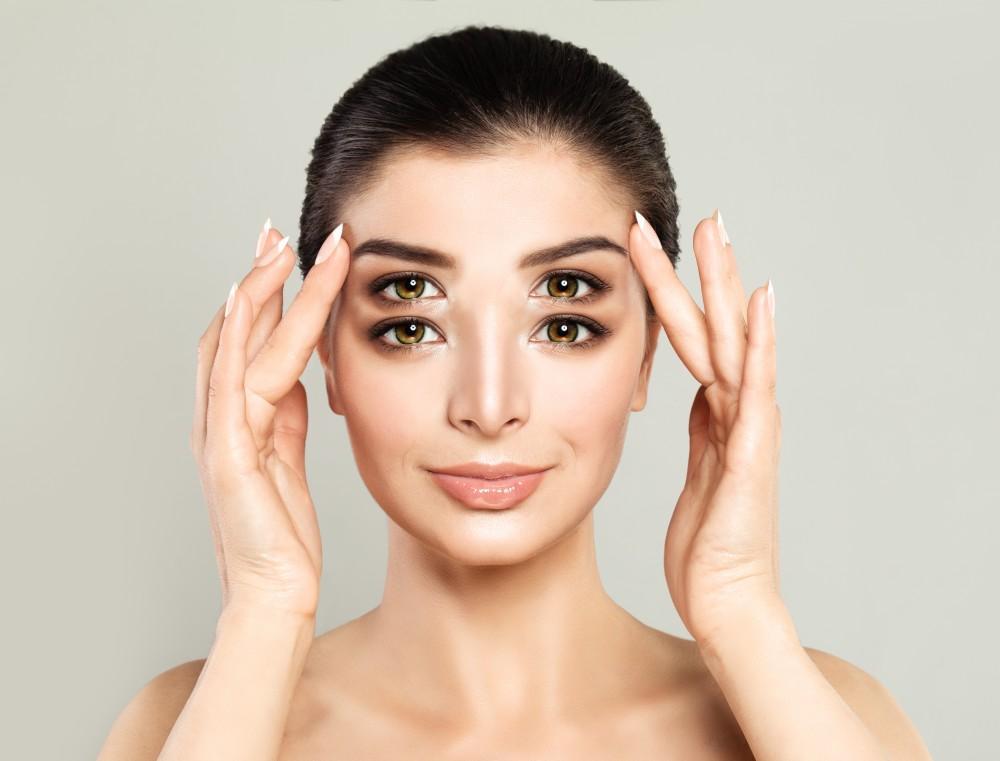
How to Protect Your Eyes as You Age

As you age, it’s normal to experience changes to your vision. This includes dealing with new prescriptions, struggling to see up close, having trouble differentiating colors, and needing more time to transition from one light level to another.
As a result, for example, you might find it much harder to read a menu in a dim restaurant than it used to be.
Many of these obstacles can be overcome with eyeglasses and improved lighting. But these aren’t the only vision problems you might experience.
Regular eye exams can help the team here at Maryland Eye Care Center in Silver Spring and Hyattsville, Maryland, detect the early signs of vision problems as you get older, including age-related macular degeneration.
In recognition of February being Age-Related Macular Degeneration Awareness Month, here are seven steps you can take to protect your eyes as you age.
1. Protect your eyes from ultraviolet (UV) radiation
Your eyelids contain the thinnest skin on your body, and they’re just not thick enough to shield your eyes from UV rays. UV radiation can affect all structures of your eye. Excess UV exposure increases your risk of corneal damage, cataracts, and macular degeneration.
You can reduce your UV exposure by:
- Diligently wearing sunglasses when outside or driving
- Wearing a wide-brimmed hat to shade your eyes
- Avoiding tanning beds
Tip: If you wear eyeglasses, consider switching to a pair with transition lenses or adding a pair of prescription sunglasses.
At Maryland Eye Care Center, we carry a variety of brands 一 Burberry, Coach New York, Columbia Eyewear, Gucci, Jimmy Choo, Nike, and Michael Kors 一 so you never have to sacrifice fashion for UV protection.
2. Stop smoking
Smoking is a notorious danger for your lungs, but the reality is that smoking affects your entire body, and that includes your eyes. Smoking increases your risk of age-related macular degeneration (AMD) twofold and increases your risk of cataracts threefold.
AMD is a leading cause of blindness among older adults, and detecting the disease early is key.
3. Add more nutrient-dense foods to your diet
Vitamin A is often touted as the “good for your eyes” vitamin, but it’s not the only one. Vitamin E, vitamin C, and vitamin A all promote healthy vision, and you can find these nutrients in bell peppers, almonds, dark leafy greens, and sweet potatoes.
Zinc, which helps bring vitamin A to your retina, is found in oysters and beef liver.
4. Manage your diabetes
Diabetes can increase your risk of vision problems, especially glaucoma and diabetic retinopathy. If you have diabetes, work with your primary care provider to manage your sugar levels. It’s also important to schedule regular diabetic eye exams.
5. Practice 20-20-20 to reduce digital eye strain
Years of working on a computer can take a toll on your eyes. If you work on a computer, it’s important to avoid digital eye strain. That includes wearing bluescreen-filtering glasses and practicing 20-20-20 — look at something 20 feet away for 20 seconds every 20 minutes.
6. Stay active
Regular exercise benefits your mind and body, and that’s especially true as you age. Regular exercise is good for your joints, can help you manage your blood sugar (if you have diabetes), reduces stress, improves mood, helps you sleep better at night, and even supports eye health.
That’s because cardiovascular exercise lowers intraocular pressure. Aerobic exercise also increases blood flow to your retina and optic nerve.
7. Don’t put off your eye exam
Perhaps one of the most important things you can do for your eyes is to stay consistent with your eye exams.
During an eye exam, we can detect the earliest signs of underlying eye conditions. For example, if we detect elevated pressure in your eye, we can recommend the appropriate glaucoma treatment before the condition worsens and compromises your vision.
Questions about your eye care? Schedule your consultation at the Maryland Eye Care Center location nearest you today.
You Might Also Enjoy...


What Can Cause Double Vision?

My Vision Is Suddenly Blurry: Is This an Emergency?

5 Tips to Protect Your Vision from Digital Eye Strain

/assets/docs/442641.png)
/assets/docs/442638.png)
/assets/docs/442639.png)
